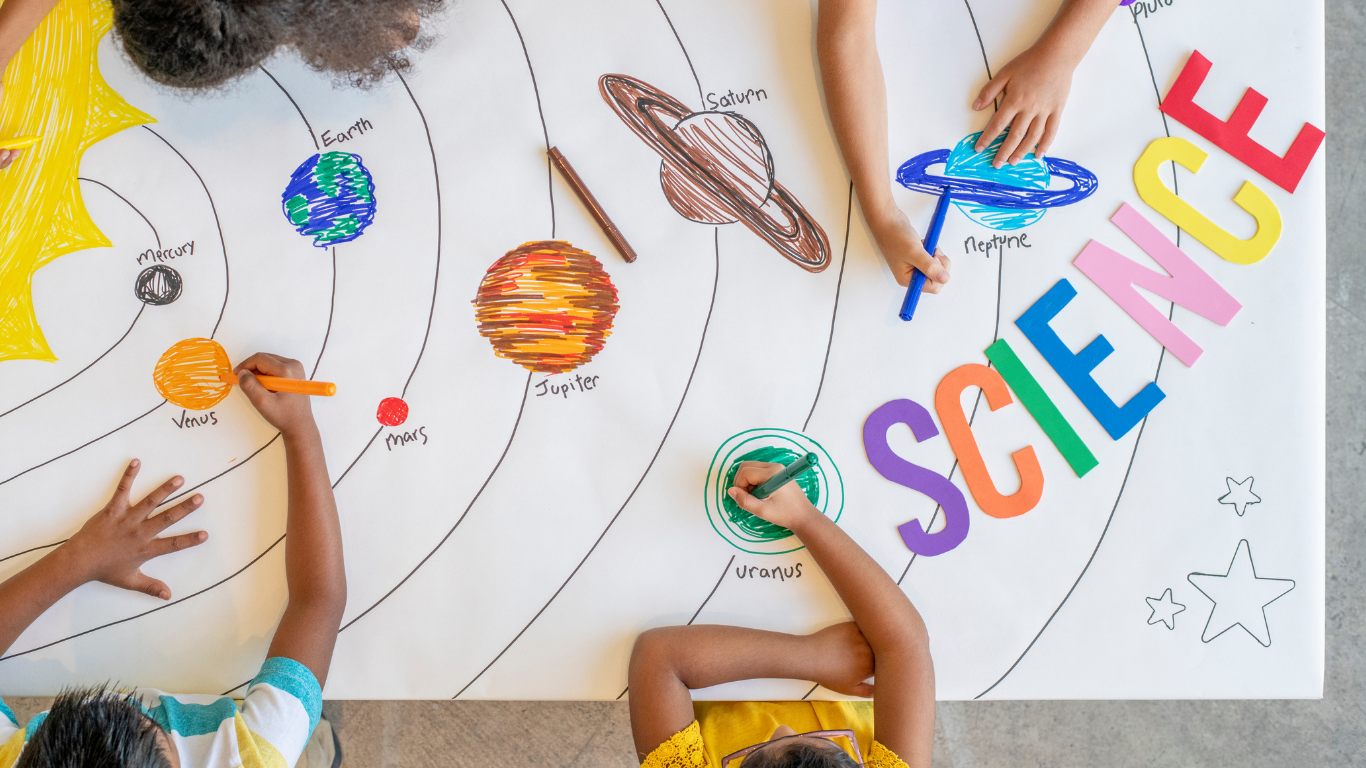Science activities for kids can be incredibly beneficial for kids. Science activities not only stimulate curiosity and a sense of wonder but also provide numerous cognitive, developmental, and educational advantages.
Science activities for kids
All three fields of science—physics, biology, and astronomy—have their unique benefits and can offer engaging activities for kids. The choice between them depends on the child’s interests, age, and the specific goals you have for their learning. Let’s explore the advantages of each:
Physics Activities:
- Physics activities can teach kids about fundamental concepts such as forces, motion, energy, and simple machines.
- Hands-on experiments can help kids understand concepts like gravity, friction, and magnetism.
- Physics activities often involve building and testing structures, fostering problem-solving skills and creativity.
- Learning about the principles behind everyday phenomena can be intriguing and help kids make sense of their surroundings.
Biology Activities:
- Biology activities can introduce kids to the diversity of life, from plants and animals to microscopic organisms.
- Kids can learn about ecosystems, food chains, and the interconnectedness of living things.
- Activities like planting seeds, observing insects, or dissecting plant parts can offer hands-on learning experiences.
- Biology encourages kids to appreciate the natural world and understand the importance of conservation.
Astronomy Activities:
- Astronomy activities can captivate kids with the wonders of the universe, stars, planets, and galaxies.
- Observing celestial events, such as lunar phases or meteor showers, can be both educational and awe-inspiring.
- Learning about space exploration, space technology, and the solar system can stimulate curiosity about science and technology.
- Astronomy fosters a sense of wonder and curiosity about the cosmos, sparking imaginative thinking.
Ultimately, the best choice depends on the child’s interests and learning style. Some children might be fascinated by the mysteries of the universe and enjoy astronomy activities, while others might prefer exploring the natural world through biology or understanding the principles that govern everyday interactions in physics.
Consider involving your child in the decision-making process. Ask them about their interests and what topics intrigue them the most. You can also expose them to a variety of activities from each field and see which ones they respond to with enthusiasm. Remember that exposing kids to a range of scientific disciplines can broaden their understanding of the world and cultivate a love for learning.

